TESTIMONY OF FATHER JUAN CARLOS POLENTINI
José María Ubillus Ezcurra
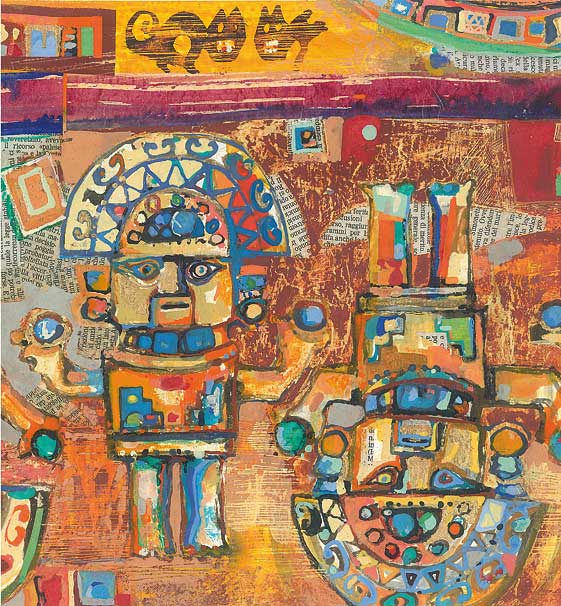
Illustrations by Antony Fachin
After meditating deeply on whether it was appropriate to publish his testimony concerning the Inca Legend of the Treasure of Paititi and how it was abominably looted in such an abominable way, Father Juan Carlos Polentini Wester recounts what happened during the Fujimori dictatorship.
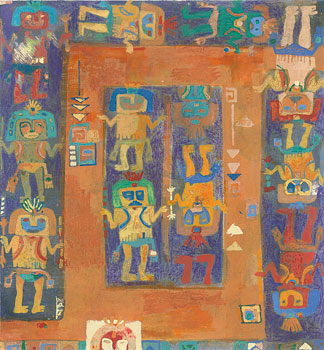 From the point of view of Father Polentini, the information he knew about the Inca citadel ought to have been taken on board by the Peruvian government, but what he got in return was scepticism, ridicule and negative responses about what he claimed was an extraordinary truth. The then President of Peru, Alberto Fujimori Fujimori, after numerous reports from Father Polentini, told him that the expedition would be carried out by his Government. It was after the last communication between Father Polentini and Fujimori that the security elements of the National Intelligence Service (SIN), controlled by Vladimiro Montesinos Torres, were made responsible for muddying the image of Father Juan Carlos Polentini by accusing him of being a "tomb robber" who could not be trusted. Ironically, in Fujimori's circle those who questioned the authenticity of the information provided by the priest were the same who, led by the Fujimori-Montesinos duo, used it to locate the gold of the Incas and perpetrate the disaster that followed. From the point of view of Father Polentini, the information he knew about the Inca citadel ought to have been taken on board by the Peruvian government, but what he got in return was scepticism, ridicule and negative responses about what he claimed was an extraordinary truth. The then President of Peru, Alberto Fujimori Fujimori, after numerous reports from Father Polentini, told him that the expedition would be carried out by his Government. It was after the last communication between Father Polentini and Fujimori that the security elements of the National Intelligence Service (SIN), controlled by Vladimiro Montesinos Torres, were made responsible for muddying the image of Father Juan Carlos Polentini by accusing him of being a "tomb robber" who could not be trusted. Ironically, in Fujimori's circle those who questioned the authenticity of the information provided by the priest were the same who, led by the Fujimori-Montesinos duo, used it to locate the gold of the Incas and perpetrate the disaster that followed.
In 1998, Father Polentini was visited by a senior executive of the Discovery Channel in the nursing home where he lives in Lima, who was interested in producing a documentary about the Legend of Paititi. No more was heard from the executive. Someone behind the scenes took it upon himself to obstruct the paperwork and close doors in government bodies where the appropriate facilities had to be provided; simultaneously with this work of obstruction, a smear campaign was waged against Father Polentini. In fact, this procedure – the "moral demolition" of people – was a type of behaviour that was characteristic of the corrupt government of Alberto Fujimori. Today, Alberto Fujimori and his accomplice Vladimiro Montesinos Torres are serving sentences of 25 years in maximum security prisons for crimes of theft against the State and crimes against humanity for aggravated murder.
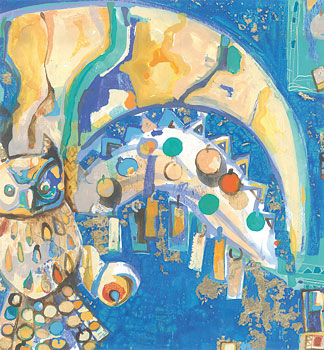 With the support of Mrs. María del Carmen Rodríguez del Solar, by June 1999 Father Polentini managed to publish 180 copies of his book (Padre Otorongo) denouncing the looting of the ruins of Paititi. Today we know that that it was this very book that was the source of the information that the SIN of Montesinos and Fujimori used to locate and plunder the citadel. With the support of Mrs. María del Carmen Rodríguez del Solar, by June 1999 Father Polentini managed to publish 180 copies of his book (Padre Otorongo) denouncing the looting of the ruins of Paititi. Today we know that that it was this very book that was the source of the information that the SIN of Montesinos and Fujimori used to locate and plunder the citadel.
Coincidentally, in August 2000, the first lady of Peru, Keiko Sofía Fujimori, bought land to grow asparagus for export in the Ica district, in places accessible only by helicopter (the world's most expensive asparagus?). Around the same time, it emerged that an army helicopter had come down while patrolling the border with Ecuador, but this was denied by the northern military garrison because they did not need that type of patrol along that border and therefore did not have that type of aircraft . This version of events also coincides with the "methods" used by the SIN during the armed conflict with Ecuador, in which losses of military aircraft were reported to have occurred along the country's central coastline, the reality being that they had been shot down by anti-aircraft missiles fired by the Ecuadorian armed forces in areas bordering Peru. 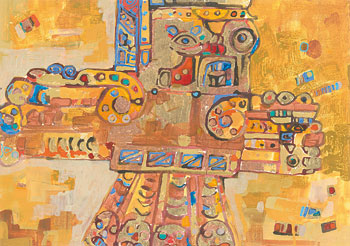 The Government of Alberto Fujimori is considered to be the most dishonest and corrupt in Peruvian history, and was expert in manipulating information to keep the public fooled about a war that was lost but the Fujimoristas proclaimed as a victory. Obviously, for them it was child's play to lie and manipulate information about Father Polentini's great discovery and avoid investigations by the independent press. Father Polentini's statements and the versions told by people in the area about the episode with the helicopters coincided perfectly with the version of events compiled by Father Polentini. Everything indicates that the helicopter crash put an end to the looting of the citadel and, fearing the scandal that would erupt if the pillage of the site by Fujimori and his accomplices were discovered, they proceeded to blow up the areas that had been looted with dynamite so as to cover the traces of the theft. The information collected subsequently about these events made it possible to establish a timeline for what happened, but that was not the only thing: the local people disclosed that the helicopters carrying the loot from Paititi used to land at the estates that the first lady had acquired in Ica, fill up with fuel and head out to sea, where ships were waiting to take it to Japanese territory. The Government of Alberto Fujimori is considered to be the most dishonest and corrupt in Peruvian history, and was expert in manipulating information to keep the public fooled about a war that was lost but the Fujimoristas proclaimed as a victory. Obviously, for them it was child's play to lie and manipulate information about Father Polentini's great discovery and avoid investigations by the independent press. Father Polentini's statements and the versions told by people in the area about the episode with the helicopters coincided perfectly with the version of events compiled by Father Polentini. Everything indicates that the helicopter crash put an end to the looting of the citadel and, fearing the scandal that would erupt if the pillage of the site by Fujimori and his accomplices were discovered, they proceeded to blow up the areas that had been looted with dynamite so as to cover the traces of the theft. The information collected subsequently about these events made it possible to establish a timeline for what happened, but that was not the only thing: the local people disclosed that the helicopters carrying the loot from Paititi used to land at the estates that the first lady had acquired in Ica, fill up with fuel and head out to sea, where ships were waiting to take it to Japanese territory.
Confirmation of what had happened there was given by Father Polentini when in August 2003 he took two Russian tourists to Mantto de Paititi. What he found were priceless archaeological remains destroyed using explosives. What had been taken? Earth, stones, or solid gold statues fashioned by the Incas?
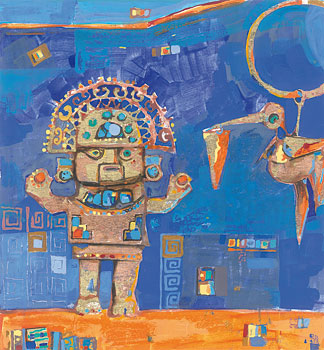 What was the purpose of blowing up this historic heritage of incalculable value, the symbols left by the last of the Incas on a wall of stone as a message to his subjects? That mural was a message of farewell from the last of the Incas. There were scenes of war, dancing, a chain, the four squares of Tahuantinsuyo; 14 Incas, a triple-line circle … and they wiped it all away so as not to leave any traces of the theft. Why was the dynamited rock heaped up, blocking the path in to the citadel, a path where Father Juan Carlos Polentini is shown standing in a photograph predating these events? Why try to cover up the archaeological remains that are still there today with clods of earth and turf? Despite all these attempts to conceal the looting, nature, in different ways, gives evidence of a crime against culture that up until now has gone unpunished. What was the purpose of blowing up this historic heritage of incalculable value, the symbols left by the last of the Incas on a wall of stone as a message to his subjects? That mural was a message of farewell from the last of the Incas. There were scenes of war, dancing, a chain, the four squares of Tahuantinsuyo; 14 Incas, a triple-line circle … and they wiped it all away so as not to leave any traces of the theft. Why was the dynamited rock heaped up, blocking the path in to the citadel, a path where Father Juan Carlos Polentini is shown standing in a photograph predating these events? Why try to cover up the archaeological remains that are still there today with clods of earth and turf? Despite all these attempts to conceal the looting, nature, in different ways, gives evidence of a crime against culture that up until now has gone unpunished.
Portrait of Father Juan Carlos Polentini Wester
What is Father Juan Carlos Polentini Wester like, and what moved him to denounce all this? The impression he gives on meeting him is of a person who radiates absolute inner peace. Also, his absolute lucidity astonishes, when he recalls with no error at all the many names of the places and people he has met along his journeys through the mountainous regions during his 25 years of Catholic ministry, bringing the Christian message to the devastated and ever-suffering ethnic groups of the foothills of the Amazon rainforest. Throughout our conversation, the feeling grew of being with a man whose absolute detachment from material things and his total awareness of being in the final phase of his life, without that meaning that he is suffering from any illness – on the contrary, his health is enviably good, and would be even for people younger than he is, and only the limitations of age itself prevent him from continuing the task, which he carried out for the 25 years of his missionary life, of spreading the doctrine of Jesus in the most remote and humble villages of the Amazon rainforest. In this context, it is understandable why Father Polentini does not flinch when he refers to the immense material value of what was stolen from Peru and yes, on the other hand, why he is moved – despite not being Peruvian – when he explains how irreparable is the loss of that link between contemporary Peru and its admirable historical roots. Juan Carlos Polentini Wester came from Argentine lands and Italian ancestors to catechize the forgotten people of the Peruvian rainforest; to them and to Peru he dedicated his life, and sooner rather than later, history will recognize the value of his actions. Those who mocked him so that they could make off with the immense legacy that this man wanted to pass on to its rightful owners, they brought nothing to this country, and for their lives to go down in poverty and be forgotten will be just the paltry monument their short-sighted greed deserves.
After the interview, Father Polentini said, with emotion: "Now, anyone who goes to Mantto who does not know it as it used to be before would say that there never was anything there." "What nature could not erase, they did." |
 NUMBER 11
NUMBER 11
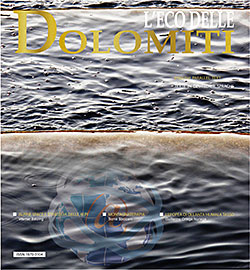

 From the point of view of Father Polentini, the information he knew about the Inca citadel ought to have been taken on board by the Peruvian government, but what he got in return was scepticism, ridicule and negative responses about what he claimed was an extraordinary truth. The then President of Peru, Alberto Fujimori Fujimori, after numerous reports from Father Polentini, told him that the expedition would be carried out by his Government. It was after the last communication between Father Polentini and Fujimori that the security elements of the National Intelligence Service (SIN), controlled by Vladimiro Montesinos Torres, were made responsible for muddying the image of Father Juan Carlos Polentini by accusing him of being a "tomb robber" who could not be trusted. Ironically, in Fujimori's circle those who questioned the authenticity of the information provided by the priest were the same who, led by the Fujimori-Montesinos duo, used it to locate the gold of the Incas and perpetrate the disaster that followed.
From the point of view of Father Polentini, the information he knew about the Inca citadel ought to have been taken on board by the Peruvian government, but what he got in return was scepticism, ridicule and negative responses about what he claimed was an extraordinary truth. The then President of Peru, Alberto Fujimori Fujimori, after numerous reports from Father Polentini, told him that the expedition would be carried out by his Government. It was after the last communication between Father Polentini and Fujimori that the security elements of the National Intelligence Service (SIN), controlled by Vladimiro Montesinos Torres, were made responsible for muddying the image of Father Juan Carlos Polentini by accusing him of being a "tomb robber" who could not be trusted. Ironically, in Fujimori's circle those who questioned the authenticity of the information provided by the priest were the same who, led by the Fujimori-Montesinos duo, used it to locate the gold of the Incas and perpetrate the disaster that followed. With the support of Mrs. María del Carmen Rodríguez del Solar, by June 1999 Father Polentini managed to publish 180 copies of his book (Padre Otorongo) denouncing the looting of the ruins of Paititi. Today we know that that it was this very book that was the source of the information that the SIN of Montesinos and Fujimori used to locate and plunder the citadel.
With the support of Mrs. María del Carmen Rodríguez del Solar, by June 1999 Father Polentini managed to publish 180 copies of his book (Padre Otorongo) denouncing the looting of the ruins of Paititi. Today we know that that it was this very book that was the source of the information that the SIN of Montesinos and Fujimori used to locate and plunder the citadel. The Government of Alberto Fujimori is considered to be the most dishonest and corrupt in Peruvian history, and was expert in manipulating information to keep the public fooled about a war that was lost but the Fujimoristas proclaimed as a victory. Obviously, for them it was child's play to lie and manipulate information about Father Polentini's great discovery and avoid investigations by the independent press. Father Polentini's statements and the versions told by people in the area about the episode with the helicopters coincided perfectly with the version of events compiled by Father Polentini. Everything indicates that the helicopter crash put an end to the looting of the citadel and, fearing the scandal that would erupt if the pillage of the site by Fujimori and his accomplices were discovered, they proceeded to blow up the areas that had been looted with dynamite so as to cover the traces of the theft. The information collected subsequently about these events made it possible to establish a timeline for what happened, but that was not the only thing: the local people disclosed that the helicopters carrying the loot from Paititi used to land at the estates that the first lady had acquired in Ica, fill up with fuel and head out to sea, where ships were waiting to take it to Japanese territory.
The Government of Alberto Fujimori is considered to be the most dishonest and corrupt in Peruvian history, and was expert in manipulating information to keep the public fooled about a war that was lost but the Fujimoristas proclaimed as a victory. Obviously, for them it was child's play to lie and manipulate information about Father Polentini's great discovery and avoid investigations by the independent press. Father Polentini's statements and the versions told by people in the area about the episode with the helicopters coincided perfectly with the version of events compiled by Father Polentini. Everything indicates that the helicopter crash put an end to the looting of the citadel and, fearing the scandal that would erupt if the pillage of the site by Fujimori and his accomplices were discovered, they proceeded to blow up the areas that had been looted with dynamite so as to cover the traces of the theft. The information collected subsequently about these events made it possible to establish a timeline for what happened, but that was not the only thing: the local people disclosed that the helicopters carrying the loot from Paititi used to land at the estates that the first lady had acquired in Ica, fill up with fuel and head out to sea, where ships were waiting to take it to Japanese territory. What was the purpose of blowing up this historic heritage of incalculable value, the symbols left by the last of the Incas on a wall of stone as a message to his subjects? That mural was a message of farewell from the last of the Incas. There were scenes of war, dancing, a chain, the four squares of Tahuantinsuyo; 14 Incas, a triple-line circle … and they wiped it all away so as not to leave any traces of the theft. Why was the dynamited rock heaped up, blocking the path in to the citadel, a path where Father Juan Carlos Polentini is shown standing in a photograph predating these events? Why try to cover up the archaeological remains that are still there today with clods of earth and turf? Despite all these attempts to conceal the looting, nature, in different ways, gives evidence of a crime against culture that up until now has gone unpunished.
What was the purpose of blowing up this historic heritage of incalculable value, the symbols left by the last of the Incas on a wall of stone as a message to his subjects? That mural was a message of farewell from the last of the Incas. There were scenes of war, dancing, a chain, the four squares of Tahuantinsuyo; 14 Incas, a triple-line circle … and they wiped it all away so as not to leave any traces of the theft. Why was the dynamited rock heaped up, blocking the path in to the citadel, a path where Father Juan Carlos Polentini is shown standing in a photograph predating these events? Why try to cover up the archaeological remains that are still there today with clods of earth and turf? Despite all these attempts to conceal the looting, nature, in different ways, gives evidence of a crime against culture that up until now has gone unpunished.